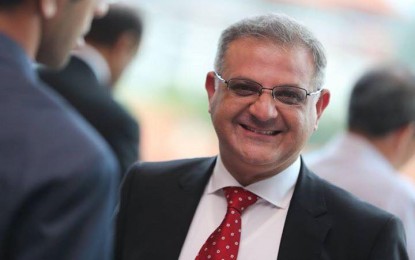
Juwai IQI Chief Economist Shan Saeed
MANILA – China’s investments in countries participating in the Belt and Road Initiative (BRI) are expected to recover once the coronavirus disease 2019 (Covid-19) pandemic eases, an economist from property, technology, and investment advisory firm Juwai IQI said.
Juwai IQI Chief Economist Shan Saeed told the Philippine News Agency in an e-mail that the slowdown in BRI investments is temporary, and Chinese investments will be on full swing once it is back apace in the global economy.
“We can expect slowdown in BRI investment in the short run. However, we at Juwai IQI believe once coronavirus is tackled and handled carefully, China will go with full force to implement it at a much faster pace,” Saeed said.
During the second Belt and Road Forum for International Cooperation in Beijing last year, a total of USD64 billion of business-to-business agreements alone were signed by BRI participating countries.
“Investment flow remains weak and investors are cautious in first half due to (a) few global economic fragilities, including Covid-19, trade war, uncertain European economy, volatile stock market, and above all structured devaluation of currencies,” he said.
Saeed said investment flow is seen to pick up by second half of the year, but economic outlook for Asean remains “cautiously optimistic”.
“We foresee slowdown in investment globally, not just Asean. Countries exposed to China or do heavy trade need to be patient as Chinese economy is trying to recover from coronavirus,” he added.
Saeed said Southeast Asia has been a significant region for China’s economy and holds massive value for its supply chain.
For the past 12 years, Chinese investments to Southeast Asia jumped by almost 30-fold to USD40 billion, he said.
Saeed cited Malaysia, Indonesia, and the Philippines as “three very important countries” in Asean for China’s BRI as it aims the bloc to become its strategic trade hub for long-term purposes.
“The Philippines continues to be on the global investors’ radar due to macroeconomic stability,” he said.
Saeed said the increase in infrastructure projects, prudent monetary policy, support for service sector, stability of local currency, and being a partner in BRI make the Philippines an attractive market for investors.
“The most important element in the GDP (gross domestic product) equation is consumption, which remains solid for many economies exposed to China. At the end of the day, aggregate demand bolsters GDP growth,” he added. (PNA)
